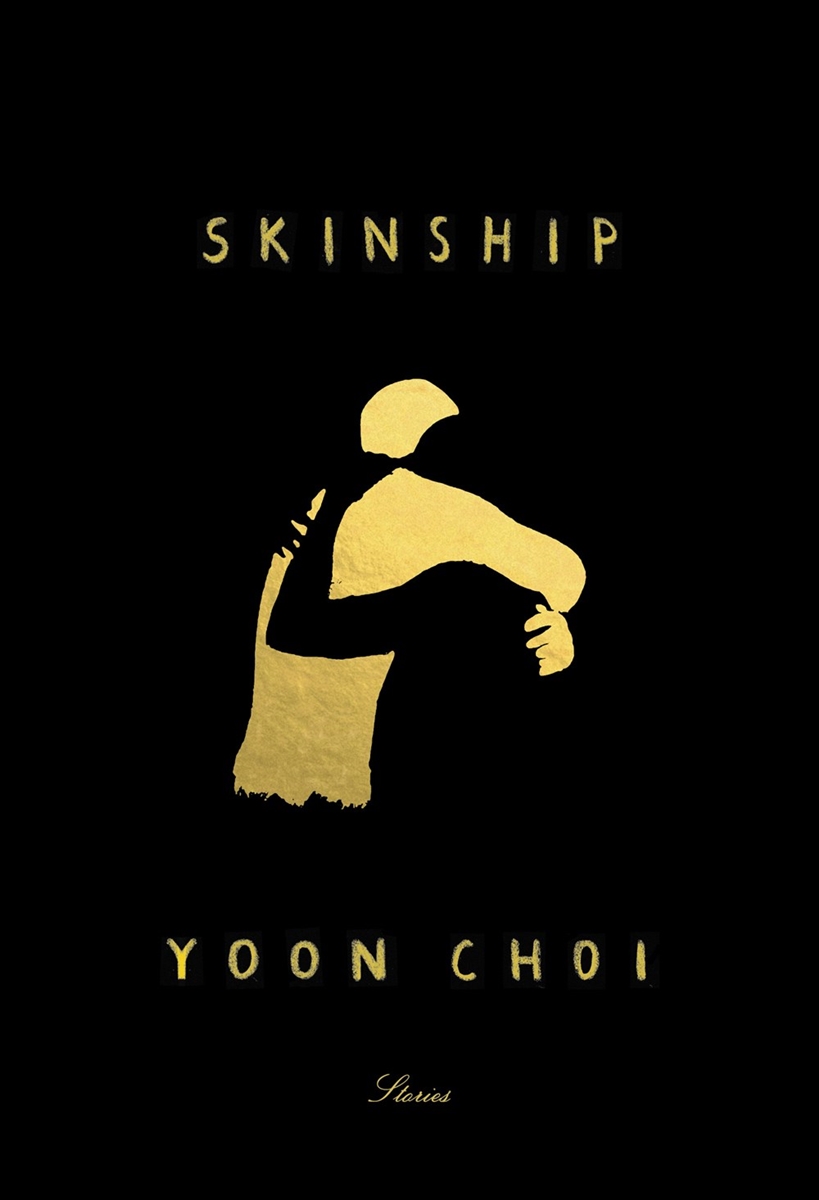Skinship
Written by Yoon Choi
August 17, 2021
ISBN 9780593318218
Yoon Choi’s Skinship offers impeccable stories that lay bare decades of long familial relationships and reveals unexpected intimacy, eventual disillusionment, and ubiquitous jeong, roughly translated as “that feeling of the glad heart when you see someone.” Replete with tropes important to Korean American families (marriage, filial duties, church life, etc.), this debut story collection will strum the heartstrings for any reader.
Many of the stories portray two disparate phases of life for the protagonists: when they are an old pair (either a married couple or siblings) and when they were young immigrants full of dreams. In the opening story, “The Church of Abundant Life”, an elderly Korean American couple, whose daily tasks are limited to stocking and working the cash register at a small store, is disturbed by the church revival service led by their old friend from Korea. The wife reminisces on her youth when she received English lessons from the pastor, and how she met the pastor’s friend who eventually became her husband. In “Art of Losing”, a wife looks after her husband suffering from an emerging Alzheimer’s disease while hiding her own illness from their children, and when advised to be patient with her husband, she muses, “Patience. Kindness. What did they really mean between husband and wife? Sometimes she felt that patience and kindness could be stretched so far in a marriage as to become their opposites.” These surprising insights readily populate these stories.
According to Choi’s stories, a family is a tangle of paradoxes. In the eponymous story “Skinship”, a mother and her children escape her abusive husband from Korea and join her sister’s family who lives in America. The teenage daughter recounts how her mother’s unhappiness has continued in the new country. After a decade, her father visits America to reconcile with the family, inferring how time can change people. In “Song and Song”, a mother who is on a trip to Europe with her teenage daughter reflects, “Even though my children have not brought me happiness in the ways that I expected, they have taught me all I know about the meaning of life. That is, I never question that their lives are meaningful. Not ever.” Family members are supposedly the closest and most intimate to each other, yet sometimes, they remain forever strangers.
As a Korean American who has experienced a similar life-trajectory as Choi in regards to the immigrant experience and parenthood, I was awed by how lucid and evocative Choi’s descriptions of the Korean-American experiences are. They include preparing a fermented kim-chi, drinking “daily decoctions of velvet deer antlers,” wives participating in a revolving loan amongst acquaintances known as “kye”, Koreans sharing a sweet potato that is “a bit wet under the skin because the steam was trapped”, and stiff Korean pillows that make a crunchy noise because they are stuffed with buckwheat hulls. These portrayals of Korean customs will enlighten those who might not be familiar with Korean American culture, while offering the comfort of recognition to those already in proximity to Korean culture.
In addition, Choi’s daring and hybrid use of language incorporates Korean words spelled as it would sound like to English speakers (abba, yeobo, Sooah-ya, chamchi jjigae, banchan). Some of the dialogue is a literal translation, without any alteration to make the meanings smoother, such as when a wife calls her husband, “You person, you!”, which sounds awkward in English but is a common colloquial idiom used by Koreans during marital quarrel. Choi’s decision to employ everyday Korean language without pandering to American English renders these stories fresh and original. APALA members will appreciate Choi’s clear, inventive, and elegant prose, perfectly tailored to unveil the vast emotional depth and spectrum about the Korean American hardships and resilient dreams of immigrant families.
Review by Richard Cho, editing assistance by Danica Ronquillo.
Book reviews and author interviews featured on APALAweb.org are reflective of the reviewer and interviewer only and are conducted separately from and independently of APALA and the APALA Literature Awards Committee and juries.

